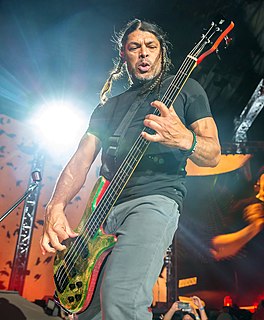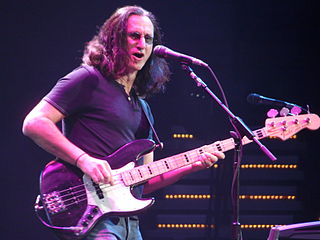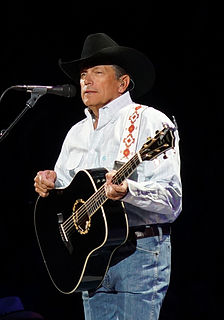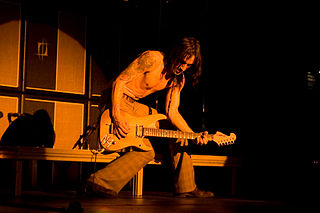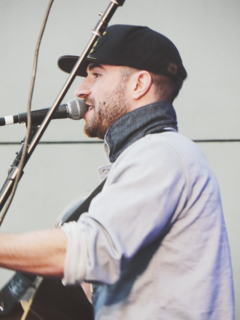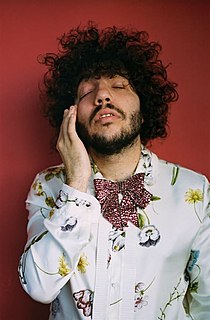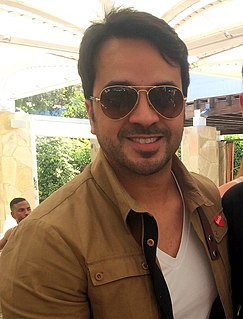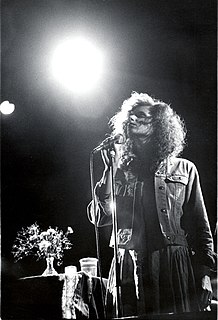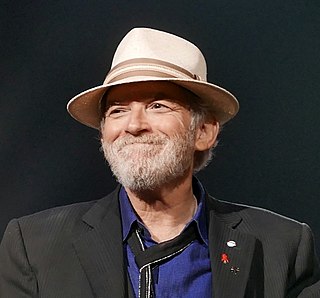A Quote by Chris de Burgh
I remember years ago hearing a top band talking about a song of theirs that was a monster hit and they were really dissing it, saying that they hoped they'd never have to play it again. I thought: 'That's not right. If people love a song, play it.'
Related Quotes
Growing up in Mississippi, the first song that I ever remember hearing, that captivated my mind and transported me from my bedroom out to the West, is a song called 'Don't Take Your Guns to Town' by Johnny Cash. That's when I was 5-years-old. And I played that song over and over again. I pantomimed it in school for show-and-tell.
All you gotta do is think of the song in your head. And it doesn't matter whether you can play it or not, you can get somebody to play it. With songs I've written, there's a song called "The Statue", which I can't play. There are songs that I've written that I've actually just hummed on - there's a song on one of the albums they have there on the Internet called "My Love Was True" and it's almost operatic. I can't play it. But I can sing it.
You are hearing this song, and you're 16, and it's a song about love, or a girl. And then maybe there's a girl at school that you like. So you're going to be thinking about that girl. That song is sort of about that girl. The songwriter doesn't know that girl, obviously. He wrote it for something else. But there's the specific meaning with the universal again.
I don't play a lot of instruments so when it comes to the song writing process I don't have a lot to do with that. A lot of times it's just acoustic guitar and a small riff that produces a song. Ultimately you want to write a song that people are going to enjoy and that you love to play, most importantly you have to write it for yourself first.
It's crazy because I was 10 years old when 'Macarena' was all over the place, and I remember looking at it from a different point of view. I remember culturally how important that song was, even though people didn't really know what they were saying. It was more about the dance and the movement of it and the cultural side of it.
Well, you know, when you're putting together a show, you've got to be careful not to load it up with the new stuff. We have to play the songs that people want to hear, too. People may come thinking, "Oh, I've just got to hear this song." Or maybe they'll write me a letter saying a certain song is really meaningful to them, so we'll be sure to play those songs.
That's a nice song,' said young Sam, and Vimes remembered that he was hearing it for the first time. It's an old soldiers' song,' he said. Really, sarge? But it's about angels.' Yes, thought Vimes, and it's amazing what bits those angels cause to rise up as the song progresses. It's a real soldiers' song: sentimental, with dirty bits. As I recall, they used to sing it after battles,’ he said. 'I've seen old men cry when they sing it,’ he added. Why? It sounds cheerful.' They were remembering who they were not singing it with, thought Vimes. You'll learn. I know you will.
Listen to the Beatles' 'Things We Said Today.' Ringo Starr does not play a fill in the entire song. It doesn't need it. 'A Day In the Life' has gorgeous fills, but there, the song needs it. When I play on any record, I'm striving to get where Ringo is. You play what doesn't take you out of the song.

